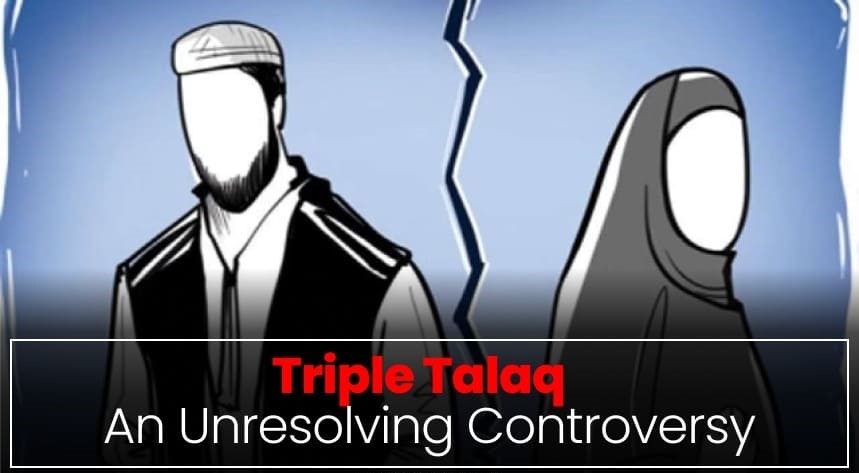
In 2023, India implemented substantial changes to divorce proceedings through amendments to the Hindu Marriage Act, particularly affecting the Hindu community. These modifications are noteworthy and involve expanded grounds for divorce, encompassing factors such as adultery, mental or physical cruelty, desertion, conversion, and the irretrievable breakdown of a marriage. Unlike the previous law that primarily addressed physical violence and harassment as forms of mental cruelty, the updated regulations now include a broader range of actions, such as financial neglect and impeding child access.
Moreover, the duration required for desertion before filing for divorce has been reduced from 2 years to just 1 year. Another significant alteration permits both partners to initiate divorce proceedings based on adultery, removing the previous limitation that restricted this option to the betrayed spouse alone.
It’s important to note that these rules specifically apply to Hindus, and various religious communities have their own distinct divorce regulations. While the impact of these amendments on Hindu marriages is yet to be fully observed, they are anticipated to reduce conflicts during divorces and provide more options for those seeking legal separation.
Waiving the Mandatory 6 Months Period for Rehabilitation
A recent legal amendment has brought about a change in the divorce procedure by eliminating the mandatory 6-month rehabilitation period for couples seeking separation. Initially, this requirement aimed to provide couples with an opportunity to reconsider their decision and attempt reconciliation in case of misunderstandings. However, in certain situations where reconciliation is not feasible, the existence of this six-month waiting period is now considered unnecessary and unproductive.
Under the updated regulations, the compulsory six-month period has been removed. Instead, the court now has the discretion to decide whether to impose this waiting period on a case-by-case basis. The court will assess the unique circumstances of each situation before determining whether an immediate divorce is more appropriate or if a six-month period should be allowed for potential reconciliation efforts. This modification introduces greater flexibility into the divorce process, enabling individuals grappling with serious relationship issues to make informed decisions about their future without strict regulations impeding them.
Irretrievable Breakdown of Marriage, a Valid Ground for Divorce
When a marriage is deemed beyond repair, divorce can be sought based on the irretrievable breakdown of the relationship. This often occurs when couples decide to live separately due to unresolved issues. Typically, both spouses need to agree to the separation for it to be considered a valid reason for divorce.
The court must assess whether there are legitimate grounds for divorce. To proceed, it requires evidence of irreparable differences or the unwillingness of one or both spouses to continue the marriage. If all legal conditions are satisfied, and there are no other viable options, the court grants a legal separation. In a significant case, Sangamitra Ghose Vs Bhaskar Rao Chodaparthy, the Supreme Court recognized irretrievable breakdown as a valid basis for divorce. This decision reflects the belief that persisting in unhappy marriages can infringe on individuals’ rights to dignity and peace.
Law of Maintenance Extended for Live-in Relationships
The law now acknowledges live-in relationships, treating them similarly to marriages concerning support for women. This modification grants women in live-in relationships the same rights as those who are married or separated, following a 1955 court ruling. This decision ensures that women in live-in relationships can also seek maintenance under Section 125 of the Criminal Procedure Code (CRPC), marking a positive stride towards gender equality.
Under the Hindu Marriage Act, various significant rights initially designed for married couples now extend to couples in live-in relationships. These rights encompass inheritance, guardianship, and custody matters. It’s important to clarify that cohabitation without marriage doesn’t establish a legal bond. However, both partners enjoy equal protection against domestic violence. Additionally, women in live-in relationships have the right to claim alimony under this Act. To do so, they must provide notice and prove abandonment or desertion due to a disagreement on marriage within the initial two years of the relationship. This process requires filing an application before the Magistrate under Section 125 CRPC.
Adultery Is Not Punishable
In India, adultery is no longer deemed a criminal offense following a ruling by the Supreme Court. The court’s rationale behind this decision is that penalizing a spouse and their partner does not contribute to salvaging a marriage; therefore, the punishment was removed. While adultery can still be cited as a grounds for divorce when one spouse engages in an extramarital affair, it is no longer a criminal offense for either party involved.
This decision was made to uphold individuals’ freedom to choose their partners when dissolving marriages. It reflects a broader societal trend of increased acceptance of individuals’ relationship choices and signifies progress in our legal system, emphasizing the protection of individual rights over traditional family values.
Triple Talaq Cannot Be a Grounds for Divorce
In India, the practice of triple talaq has faced widespread criticism. This tradition, grounded in Muslim law, permits a man to divorce his wife by uttering “talaq” three times, without any requirement for providing a reason or considering his wife’s objections. This system heavily favors men, rendering women powerless to contest or prevent the divorce if their husband chooses to proceed with it.
In 2023, new divorce regulations were introduced to foster fairness and gender equality in marriage. A significant change was the declaration of the practice as unconstitutional, stripping it of its significance. This decision empowers Muslim women, granting them the freedom to either choose or contest their marriages without constraints. It also ensures equal rights for both men and women in marital matters, enabling them to make choices with respect and without limitations.
Most Important Points to Remember While Divorce Alimony or Maintenance Issues
Alimony, also referred to as maintenance allowances, plays a vital role in divorce proceedings. It entails financial support aimed at maintaining the recipient spouse’s standard of living post-divorce. This support can manifest in various forms, including regular payments, property transfers, and even health insurance coverage for a specified period following the divorce.
Typically, courts refrain from ordering permanent support unless it is deemed necessary due to one spouse’s disability or is part of a mutual agreement. When determining alimony, courts take into account factors such as the duration of the marriage, the ages of the spouses, their incomes and earning potentials, any retirement benefits, and any misconduct during the marriage. They also assess the financial resources available to both parties. Furthermore, the court may consider other pertinent evidence to ascertain whether alimony should be granted and at what amount. Alimony matters can become intricate depending on the unique circumstances of a couple, making it crucial to address these issues during mediation, if possible, aiming for a harmonious resolution outside of court.
How are property matters settled?
Resolving property matters in family law often coincides with issues such as divorce, paternity disputes, and child custody. In India, child custody falls under the jurisdiction of the Guardians and Wardens Act, 1890, serving as the primary legislation on this subject. Custody arrangements generally fall into three categories: sole/exclusive (where one parent has custody), shared/joint (where both parents share custody), or third-party custody (where neither parent has full custody rights). In cases involving children under 5 years old, the mother typically receives custody.
According to the Muslim Women (Protection of Rights on Divorce) Act 1986, boys under 2 years old are granted to their mothers, and daughters stay with their mothers regardless. This information is crucial to consider in property-related matters like divorce settlements and debt payments because it significantly influences court decisions. Childcare arrangements play a substantial role in such legal proceedings.
